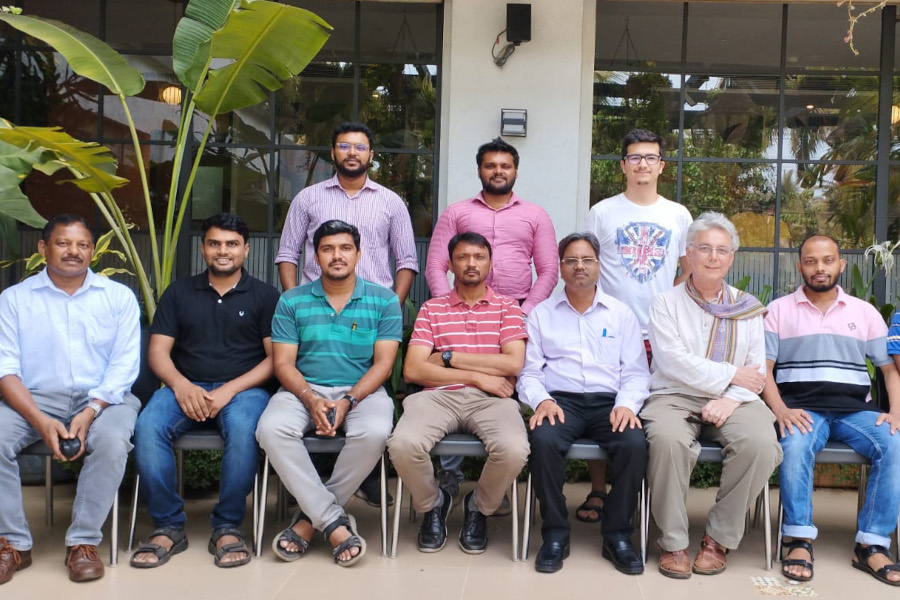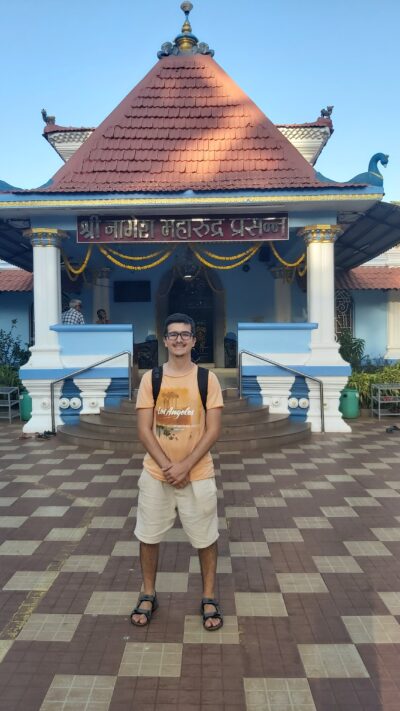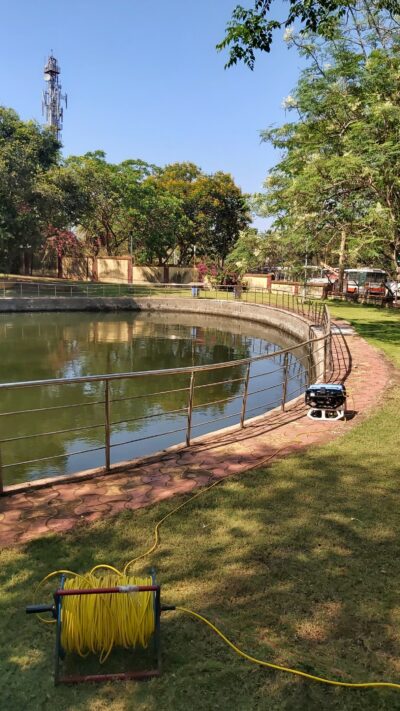Skip to content
ISR Researchers Around the World | Eduardo Cunha @Goa
In an exciting collaboration project between Portugal and India, researchers Eduardo Cunha and António Pascoal recently spent a month in Goa, working closely with their counterparts at the Indian National Institute of Oceanography (NIO). The aim of this joint effort was to develop marine vehicles capable of cooperatively mapping the bottom of the Ocean in the scope of the Ecobotics project. This project represents a significant technological advancement in real-time monitoring of the ocean’s flora.
During their time in Goa, Eduardo Cunha shared that their main goal was to ensure the smooth functioning of their BlueROV, with the newly developed code by DSOR researchers at ISR-Lisboa. The team also conducted on-site tests to assess the controllers and path-following capabilities of the vehicle, pushing the project forward.
“Before heading to Goa, we tested our BlueROV in Lisbon several times, to ensure it was compatible with the new code. However, their vehicle was encountering some issues, with sensors, GPS, and on other fronts. So, our goal was to ensure that their BlueROV performed at the same level as ours in Lisbon. I’m happy to say that we succeeded and left it working exceptionally well,” explained Eduardo.
The month-long endeavor proved to be a valuable learning experience for the Portuguese researchers. Eduardo mentioned that they had to revisit fundamental questions, which provided a fresh perspective on their work in Lisbon. Additionally, he expressed his fascination with the local gastronomy, particularly the diverse range of condiments and vegetarian dishes he had the opportunity to try.
“Working in a completely new environment, alongside people I had never met from the other side of the world, was an incredible opportunity. It allowed me to grow both personally and professionally. Being away from Portugal and assuming a great deal of responsibility truly made a difference” shared Eduardo.
The fruitful collaboration between Portuguese and Indian researchers in Goa has paved the way for further advancements in ocean exploration. With their marine vehicles operating at peak performance, this joint effort promises to unlock new discoveries in the depths of the ocean and contribute to the field of marine environmental science and technology.
-

-
Ocean view in Goa
-

-
Eduardo Cunha enjoying India
-

-
Testing the BlueROV in the water
Share This Story, Choose Your Platform!









